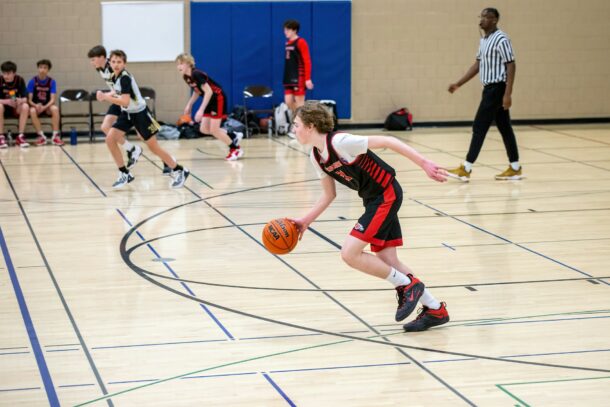To maximize your time means to be as efficient as possible with a given task. For coaches, this often results in hours of prep time practicing planning. That time provides coaches with the opportunity to organize their thoughts and approaches. There are ways to simplify practice planning, but what if you’re a player? Maximizing your time as a player is just as important.
Maximize Your Time: Stretch Yourself
The idea here goes beyond the physical. Of course, athletes need to stretch to prepare and prevent injury. Muscles require this sort of physical manipulation in order to perform at their peak. Stretching also helps athletes gain more from their muscles in terms of ability and reach.
But it’s important to remember the concept of stretching yourself goes beyond the physical. Our brains are muscles, and they need stretching too. During down moments, how do you maximize your time? Coaches and players, really everyone, should look to learn new skills and appreciate new ideas as often as possible.
Being an athlete or a coach shouldn’t mean you’re consuming only sports-related content. Stretch beyond the limits of your sport to other realms. NBA coaches often turn to business gurus for advice on team building. Coaches seek bonding events and different ways to create connections for their players. And many of those ideas often comes after looking to places other than the gym.
Stretch yourself as often as possible, being a lifelong learner.
Maximize Your Time: Drop Comparisons
Comparing yourself to others can often be a rollercoaster ride. As coaches, we can’t help but look at the teams on our schedules and immediately stack our team right beside those. While it’s valuable to assess our team, to do so through the lens of another team can often be harmful. In the same way that people should avoid constantly comparing themselves to those around them, coaches need to focus on developing the team they have, and not necessarily the team they want.
Coaches can’t worry about what other teams are doing during the summer, or how their rivals are preparing for the season. You should evaluate your squad, and seek to develop practice approaches to improve your players. Constantly comparing your team, or yourself, to another can be an exercise in futility.
Drop comparisons with others because you’re not that team, or you’re not that coach. Focus on yourself, your team, and how to make things better. Coaches can look for way to improve focus and fun at practice and might immediately see dividends being paid.
Maximize Your Time: Be Okay with Making Mistakes
Teachers often assign homework to their students in order to gauge the understanding of a given lesson. Coaches practice similar habits following games and fold this information into the next day’s practice plan. None of us are perfect, so we should understand that we’re going to make mistakes from time to time. It’s important to accept that reality so we can see these moments as learning opportunities instead of abject failures.
It’s okay to make mistakes, as long as you’re learning from them. By learning from your mistakes, you can avoid making the same ones in the future. You’re growing as a coach, as a person. For the players, making mistakes is part of the game. There’s literally a column for it on the stat sheet: turnovers. Players should push themselves to hone new skills in individual workouts. Understand that it won’t be perfect, especially not at the start.
Coach Collins says when his team is working on two ball drills, “if the ball isn’t bouncing all over the gym, you’re not pushing yourself.”
Steve Nash famously said: “I am uncomfortable being comfortable.” NBA trainer Tim Groover said something similar:
“Bottom line–if you want success of any kind; you have to be comfortable being uncomfortable.”
Understanding and accepting that you’re going to make mistakes, as a player and as a coach, will help maximize your time. This is an important part of the growth process. Coaches can help prepare their teams to learn from their mistakes by teaching situational basketball.
Related: 3 Key Basketball Intangibles for Young Players to Develop
Coach Unplugged Podcast

Ep: 461 Three Ways to Maximize your Time as a Player or Coach
If you found this useful, don’t forget to check out additional blog posts at TeachHoops.com. Also, check out TeachHoops on Facebook, Twitter, Instagram and YouTube.






